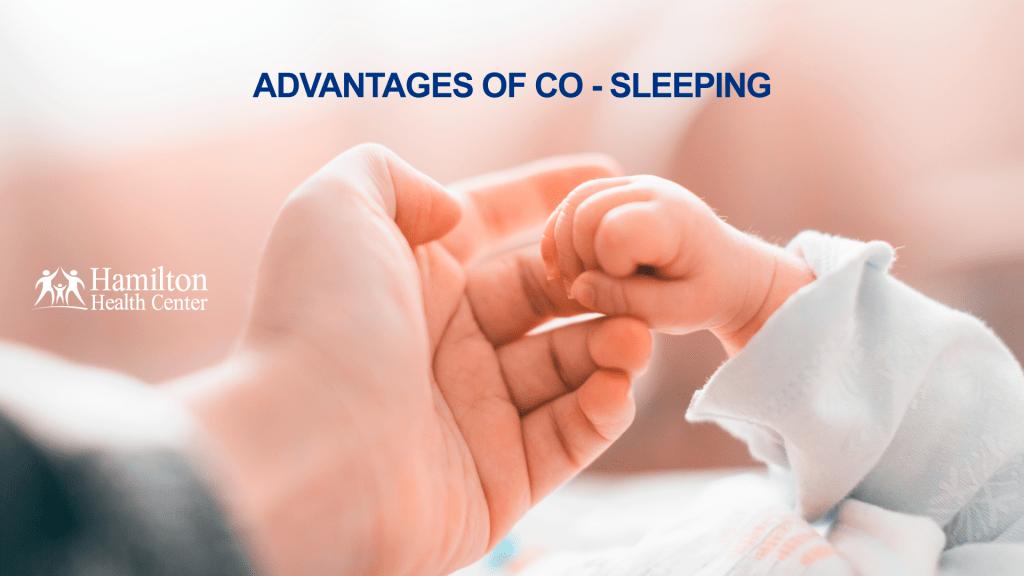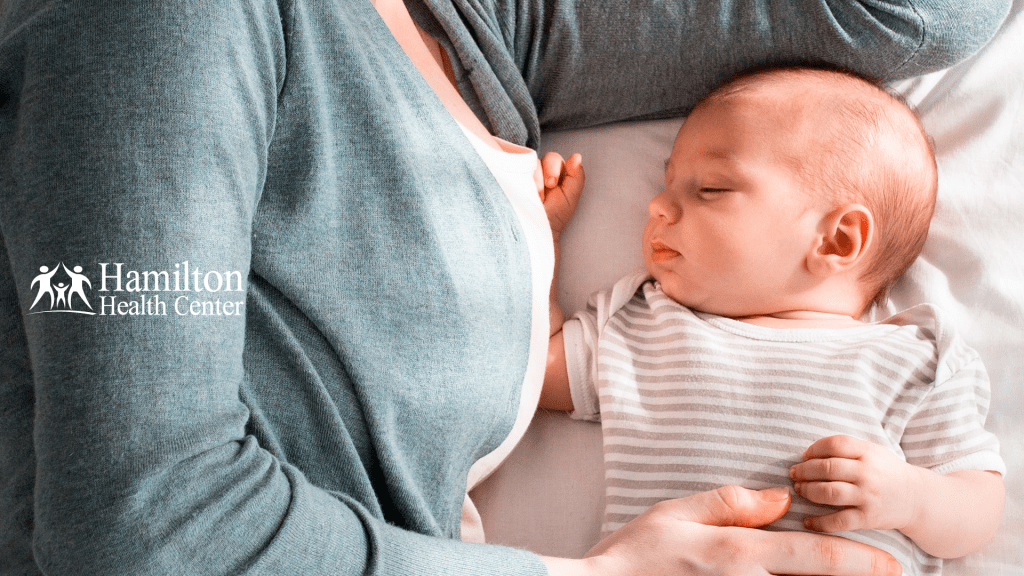Bringing your new baby home from the hospital is one of the most incredible feelings any new parent will ever experience. You hold this tiny body in your arms and realize that their safety, well-being and survival depend on you. As a mother, you have never left your child alone as you carried them for the last nine months, so how will you put your baby to sleep in a crib? They have never been away from you.
Co-sleeping — or sleeping in proximity to your baby, often in the same room — and bed-sharing are decisions that more and more families are opting for with new babies and even toddlers. This can be mutually beneficial for both mother and baby but needs to be done according to safety guidelines.

What Are the Advantages of Co-Sleeping and Bed-Sharing?
Being a new parent or even a parent for a second or third time, it is quite easy to forget just how little sleep you get with a new baby at home. Co-sleeping and bed-sharing can help parents get more restful sleep at night. Babies sleeping with the smell and touch of their parents tend to get more sleep, too! Here are a few more advantages of co-sleeping:
- Breastfeeding is easier during the night when the baby is nearby.
- Sudden infant death syndrome (SIDS) risks are reduced by up to 50% by sleeping in the same room.
- There is no nighttime separation.
- There are fewer bedtime hassles.
- You can keep your baby close all night and wake up to your smiling baby.

Safety Guide to Co-Sleeping and Bed-Sharing
When considering co-sleeping or bed-sharing, it is important to follow a few safety guidelines to prevent unintentional injury to your baby and other incidents. Co-sleeping or room-sharing is considered safer than bed-sharing, so keep that in mind as you make your decision. There are still co-sleeping safety tips you can follow to ensure you can sleep with peace of mind.
Consider Your Sleep Space
Considering your bed size and mattress is important as you want to ensure that there is enough room for everyone to sleep comfortably. Consider your partner and how you usually sleep, as this will help determine a space big enough for all of you.
If you’ll be sharing a room instead of a bed, which the American Academy of Pediatrics (AAP) recommends, evaluate your room’s layout. Where will there be space for the crib or bassinet? Will you need to move furniture to ensure a clear path between your bed and your baby’s?
Clear Your Bed
Make sure you remove unnecessary blankets and pillows from your bed that could become a danger while you and your baby are asleep. Remove scatter cushions or any other decorative linens that could cause a safety issue. Ensure your sheets are tight-fitting and your baby cannot become tangled in them. Keep the covers off your baby’s head and ensure your bed is not too soft, such as a waterbed.
Make a Safe Space for Your Baby
Make sure your bed is safe for your baby to sleep on if you choose bed-sharing. Clear any unnecessary blankets, pillows and stuffed animals. Using bedrails can also be beneficial to ensure your baby does not roll off of the bed as they get bigger. If your bed is against a wall or piece of furniture, make sure there is no space between the bed and wall before bedtime.
Again, sharing a space rather than a bed is recommended, and you should check that your child’s crib meets safety requirements. Use a firm mattress that fits well in the crib. Avoid adding any blankets, pillows or stuffed animals into your baby’s crib.
Keep Your Baby Lightly Dressed
Keep your baby lightly dressed and avoid swaddling the baby. Avoid big jackets, fluffy blankets and anything else that could be pulled over your baby’s head in their sleep. Keep them lightly dressed and focus on warming the room as opposed to dressing your baby too warm in a cold room.
Avoid Alcohol or Drugs
It is very important that you are not under the influence of drugs or alcohol when you get into bed with your baby, as a lighter sleep is preferred when bed-sharing to avoid the risk of suffocation. If you have taken sedative medication or are suffering from sleep deprivation, it is also advised against bed-sharing during this time as it will be difficult for you to wake.
Sleep Facing Your Baby
Facing your baby can let you monitor them continuously throughout the night. This will also make breastfeeding throughout the night much easier for mom and baby. Even if your baby is sleeping in a separate crib, facing them throughout the night can give you peace of mind.
Childproof Your Bedroom
While guidelines suggest room-sharing up to age 1, you may choose to share a room longer with your toddler. As your child gets older and is able to get off of the bed and move around, make sure your bedroom is childproofed. Anchor furniture to the walls, and avoid having anything in your bedroom that toddlers can climb on or pull on. You should also protect outlets and keep cables and wires out of sight.
Keep Your Pets off of the Bed
Many children suffer from allergies, and having your fur babies on the bed could become a health risk to the baby. Keeping your pets off of your bed is important as you want to create a clean and dust-free environment for your baby to sleep in.
If your pets won’t sleep in their own beds and continue to sleep in your bed, it is better to find an alternative place for your baby to sleep and consider room-sharing.
Avoid Strong Scents
Strong scents in lotions, fabric softeners and air fresheners can affect your baby’s sensitive senses. This is best to avoid around the house while your baby is small and especially in bed.
Avoid Your Older Children Sleeping Next to a Baby
Anyone that has slept with a toddler or elder child can easily agree that they sleep as if they need to take up the whole bed. Keeping older children out of the bed is beneficial for a number of safety reasons. When an older child is asleep, they are less likely to worry about their younger sibling. Consider room-sharing with your older child in their own toddler bed for when the new baby arrives. You might also move your toddler to their own room if you feel they’re ready.
Put Your Baby in the Best Position
All major medical groups recommend that a baby sleeps on their back, as most cases of SIDS occur when baby is sleeping on their stomach.
Seek New Parent Services at Hamilton Health Center
Co-sleeping and bed-sharing can be an incredible experience for the whole family and includes a whole range of advantages. Practicing safe co-sleeping or bed-sharing practices can make this journey a truly wonderful one. At Hamilton Health Center, we’re dedicated to helping new parents achieve healthy outcomes.
Our Baby Love Services combine substance use treatment with other support and family preservation services to help new parents and prenatal individuals. For more information on our Baby Love Services, contact Hamilton Health Center today.


